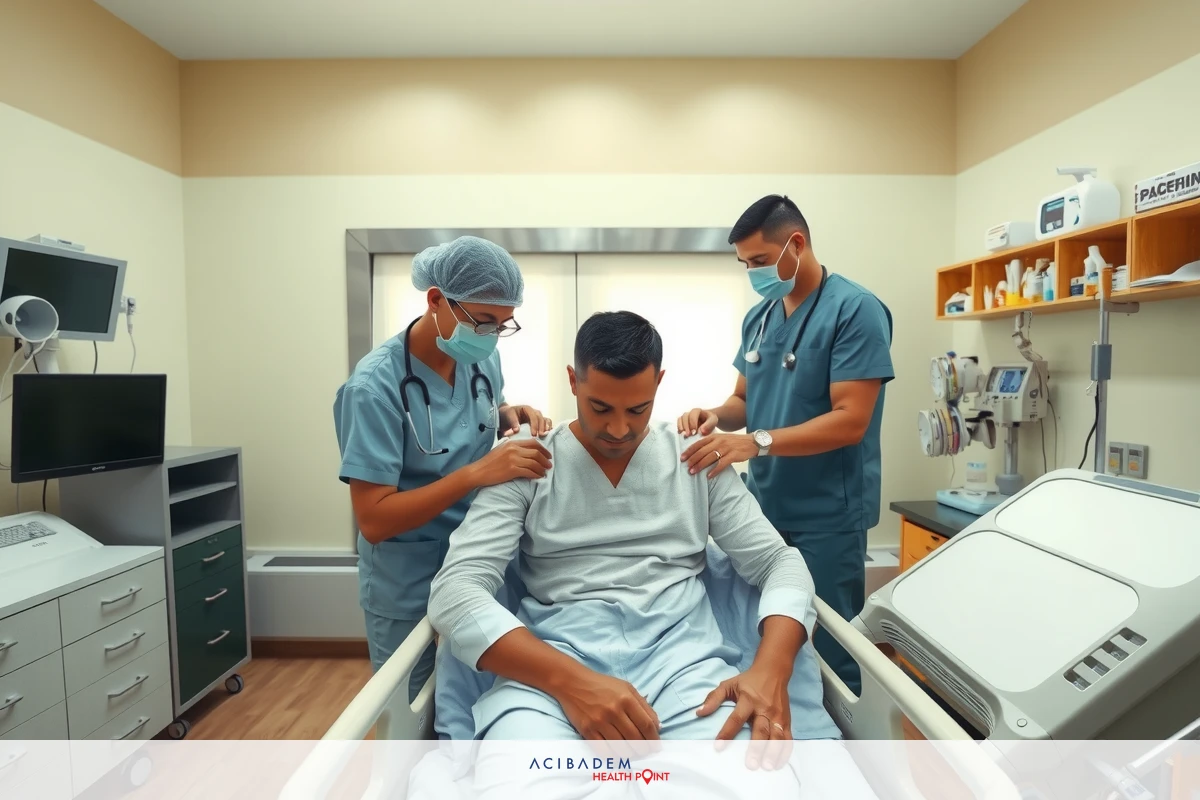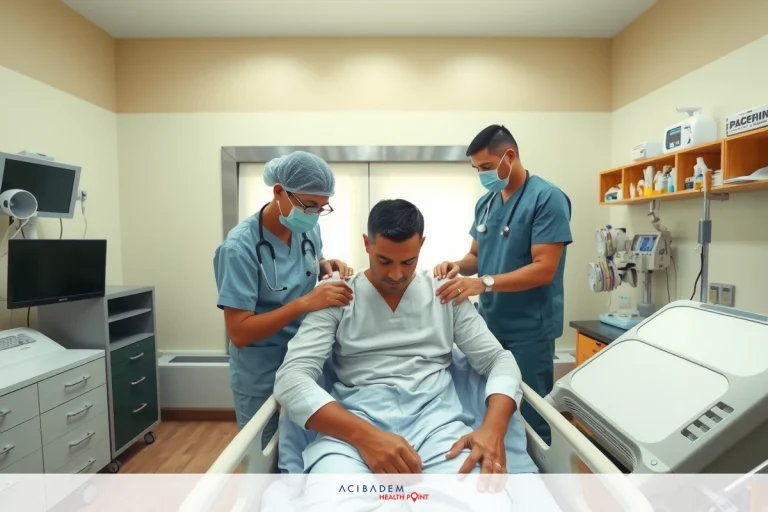Shoulder PJI
Shoulder PJI When a person has shoulder PJI it is vital to understand what this means for their health. It’s an infection and can affect the way we move each day. The good news is that with the right care people often get better. Our goal here is to make sense of this problem in simple words.
To tackle shoulder PJI doctors use their skills to find out what’s wrong and how to fix it. They look at your case ask you questions and do tests. This helps them know the best steps towards your recovery so you can go back to your daily life.
Treatment for shoulder PJI varies based on how serious it is. Some patients may need medicine while others might need more help like surgery. After treatment comes rest and then slowly getting back into action with exercises meant to aid healing.
What is Shoulder PJI?
Shoulder PJI stands for shoulder prosthetic joint infection. It’s a serious problem that happens when germs get into the area around a shoulder replacement. If not taken care of it can cause pain and other big issues.
The causes of shoulder PJI are often linked to surgery or wounds that let in bacteria. Sometimes, even with good care, these germs still find a way to start an infection. Other times it could be from things like a weak immune system that cannot fight off the germs.
To know if someone has this type of infection, doctors look at symptoms such as redness, warmth or fluid around the joint. They may also feel tired or have fever which shows their body is trying to fight the infection. Tests can tell more about what’s going on inside.
If you have shoulder PJI treatment must start fast to avoid more problems. The doctor will talk about options like medicine or sometimes another operation to clean out the infection. Afterward comes healing time and then exercises help your arm move well again.
Symptoms of Shoulder PJI
When someone has shoulder PJI they may notice their shoulder feels warm and looks red. The area might swell up and cause a lot of pain that doesn’t go away with time. This can make it hard to move the arm or do simple tasks like lifting things.
Another sign is fever which shows the body is trying to fight an infection. Some people also feel chills that come and go even if they are not cold. These symptoms mean you should see a doctor right away for help.
Along with these signs there could be fluid coming from where the surgery was done. If you’ve had a recent operation on your shoulder and notice this symptom tell your doctor fast. They will know what tests to do next.
Lastly sometimes the joint might seem loose or not work right which makes using your arm tough. If you feel any of these symptoms after having shoulder surgery getting checked out is key. Early treatment can stop more harm to your health.
Diagnosing Shoulder PJI
To find out if someone has shoulder PJI doctors start with a good look at your medical history. They ask questions about past health, recent surgeries, and any signs you’ve been having. This chat helps them know
what might be wrong.
Next comes the physical exam where they check the shoulder closely. Doctors feel for heat, swelling, or anything that seems not right around the joint area. They may move your arm to see how well it works and if it hurts.
After talking and checking you over tests are often needed to help make the diagnosis clear. Blood tests check for signs of infection in your body like high white blood cell count. Imaging tests such as X-rays or MRI scans let doctors see inside your shoulder. These pictures can show problems with the implant or changes in bone that point to an infection.

Treatment Options for Shoulder PJI
For those facing shoulder PJI treatment plans depend on how bad the infection is. Early cases may be managed with antibiotics given by mouth or through a vein. This approach aims to kill the bacteria causing the trouble without surgery.
If the infection is more serious or doesn’t get better with drugs alone doctors might suggest surgery. One option is debridement where they clean out infected tissue and wash the joint. They also check that your artificial joint parts are okay.
In some situations removing the implant might be necessary to clear up the infection. If this happens you’ll likely need a new shoulder replacement once you’re healed up from the infection. Your doctor will explain what’s best for your specific case.
Another surgical route includes using antibiotic spacers after taking out an infected implant. These spacers release medicine right into your shoulder area until you’re ready for a new joint piece to go in.
Lastly long-term antibiotic plans can play a part in keeping infections away after surgery is done. It’s important to follow all doctor advice here and take all medicines as told so everything heals well and stays healthy over time.
Recovery and Rehabilitation
After treating shoulder PJI recovery starts with rest. Your body needs time to heal from the infection and any surgery. During this period it’s important to follow your doctor’s advice closely.
Rehabilitation exercises are key to get your shoulder back in shape. A physical therapist will guide you through movements that help regain strength and flexibility. These activities start slow but grow more intense as you get better.
Pain management is also a part of recovery. You might need medicine to help with pain after treatment. Always take these as told by your doctor for the best results.
Follow-up visits with your doctor make sure everything is healing well. They check on how the infection is doing and see how far along you are in rehab work. This helps them know if they need to adjust anything in your care plan.
The last goal of recovery is getting you back to daily life tasks without trouble from your shoulder PJI or its treatment. It takes patience, effort, and time but many people do return to what they love doing before their health issue started.
Frequently Asked Questions
Q:
Shoulder PJI is usually caused by bacteria entering the joint during or after surgery. It can also happen if bacteria travel through the bloodstream to the joint.
Recovery time varies for each person and depends on how severe the infection was and what treatment was needed. Your doctor will give you a timeline based on your case.
While not all cases can be prevented, reducing risks is possible with proper surgical techniques, sterile environments, and following care instructions after any procedure involving your shoulder. What causes shoulder PJI?
: How long does it take to recover from shoulder PJI treatment?
Can shoulder PJI be prevented?










